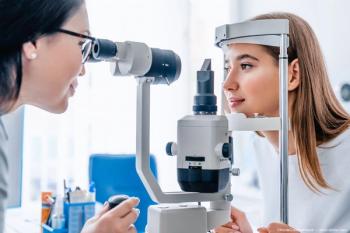
Biosimilars in Retinal Diseases
Dilsher Dhoot, MD, provides an overview of biosimilars in retinal diseases and discusses how he identifies patients suitable for biosimilar therapy.
Episodes in this series
This is a video synopsis/summary of a panel discussion involving Dilsher S. Dhoot, MD.
A retina specialist discusses the role of biosimilars in treating retinal diseases in a recent roundtable. Biosimilars, created from living cells or organisms, are used in various medical fields, including ophthalmology, oncology, rheumatology, and gastroenterology. Dhoot emphasizes that a biosimilar is highly similar to its reference product, with no meaningful differences in efficacy or safety.
Dhoot distinguishes biosimilars from generics, noting that generics are chemically identical, while biosimilars, produced in living cells, may not be identical but must not differ significantly in safety or efficacy. He introduces the concept of interchangeability, a special FDA designation requiring additional data demonstrating no clinically meaningful differences between a biosimilar and its reference product when switched back and forth.
Dhoot shares a positive experience with biosimilars over a year, using them for various retinal diseases like neovascular age-related macular degeneration, retinal vein occlusion, diabetic macular edema, diabetic retinopathy, and myopic choroidal neovascularization. He considers treatment-naive patients and those on bevacizumab or ranibizumab as appropriate candidates for biosimilars, ensuring patient comfort through transparent discussions about the medication's origin and FDA approval. The ophthalmology roundtable participants express overall comfort with the regulatory pathway of biosimilars, recognizing them as a novel concept in the retinal space.
Video synopsis is AI-generated and reviewed by Ophthalmology Times editorial staff.
Newsletter
Don’t miss out—get Ophthalmology Times updates on the latest clinical advancements and expert interviews, straight to your inbox.






























